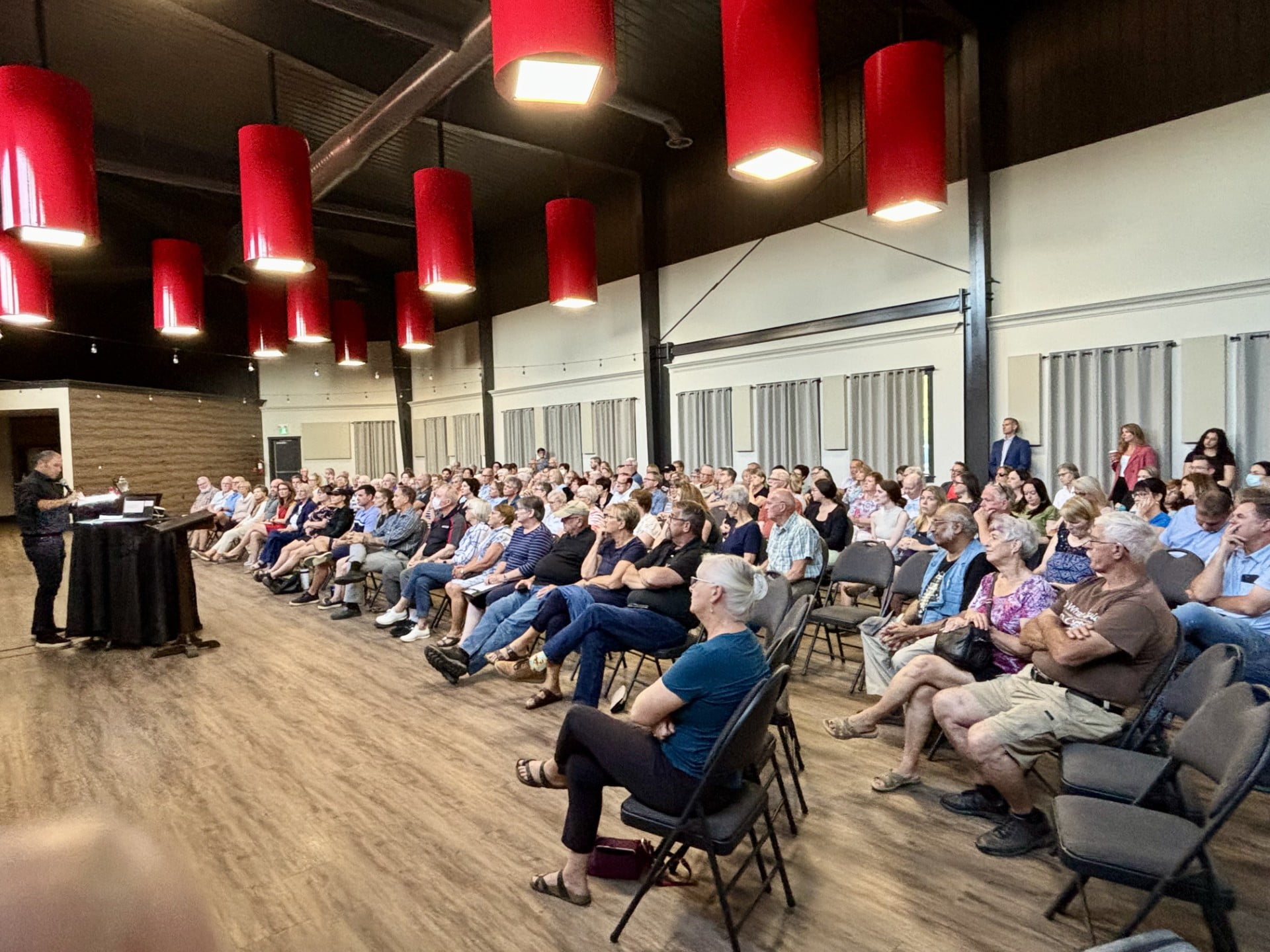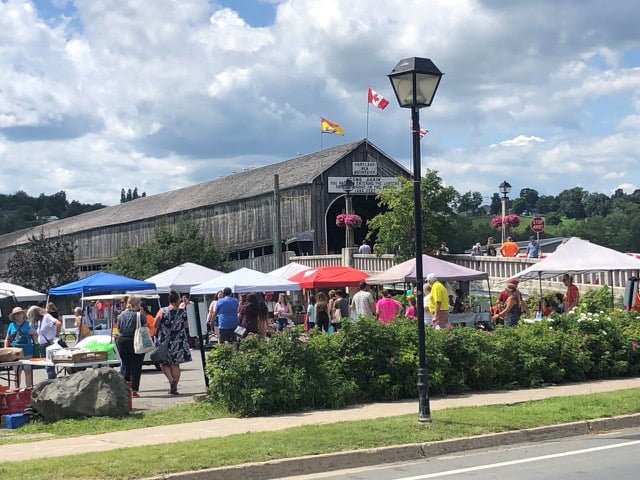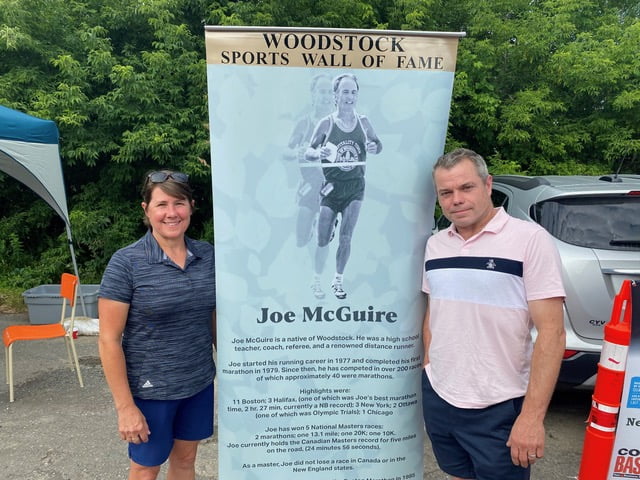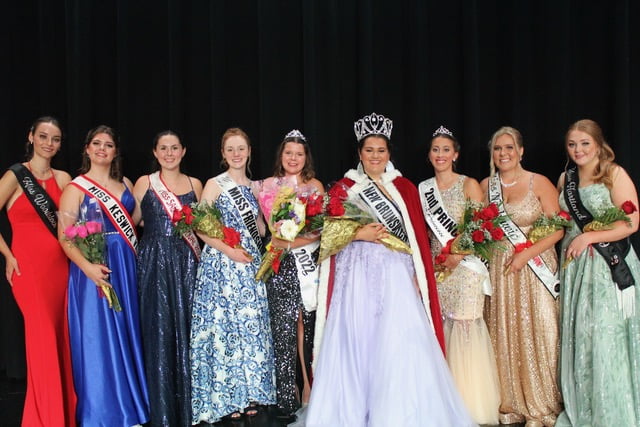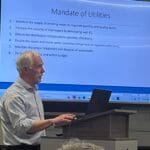NBMS executive director tells large Carleton County crowd that answers to solving primary care health crisis are there but are costly
The executive director of the New Brunswick Medical Society (NBSA) told a large crowd in Centreville on Tuesday evening, Sept 17, that the solution to address the Upper Valley’s primary care crisis is clear but challenging and costly.
“The ideas are there to solve the problem,” said René Boudreau to the approximately 150 people on hand for the health care forum at the Western Valley Multiplex.
With the New Brunswick election campaign officially underway, he said voters in Carleton-Victoria must demand a commitment from every candidate to embrace the solutions, which start at a local level.
“You heard them here tonight,” Boudreau said about solutions laid out during the almost two-hour meeting. “Voters will need to make sure candidates in this coming election are committed to bringing the ideas to life.”
Boudreau said the Centreville event was the second in a series of public forums to address the crisis in primary care in most New Brunswick communities.
He said the Centreville audience expressed “very similar” concerns to those he heard at the NBMS’s first forum in Sussex.
“People are frustrated with the lack of access, with nothing tangible they can do to solve it,” Boudreau said.
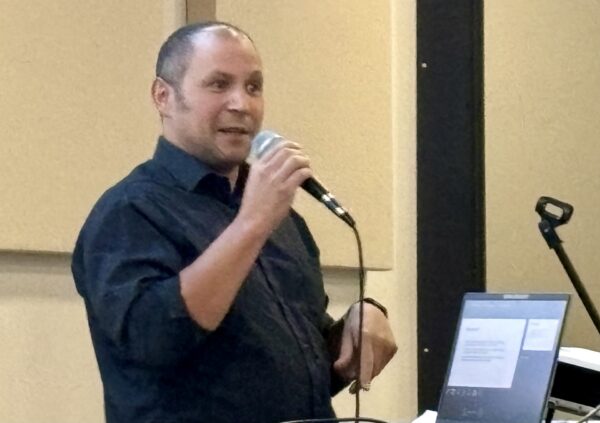
During his address at the Centreville forum, Boudreau outlined what the NBMS believes is a tangible option: community health clinics designed and built by the community for the community. He added that Carleton-Victoria had already laid the foundation for a family-clinic model but required provincial government logistical and financial support.
Boudreau said that the medical society and the doctors it represents believe that the collaborative model is the best way to deliver primary care to communities. He said the clinics — designed and operated through a community partnership of healthcare professionals, local governments, private businesses, community organizations and others — would offer multiple doctors, healthcare specialists, administrative support and other services to meet the needs of local patients.
“Build a collaborative team to meet the needs of the community,” he said.
He said the College of Family Physicians of Canada endorses the model, which has proven successful in other jurisdictions.
Boudreau said the primary-care crisis affects all New Brunswick regions, including Carleton-Victoria. He said the number of New Brunswickers without a family doctor doubled over the past six years, from 60,000 to 120,000. He said one in five are now without a family doctor, adding the numbers will grow as more doctors retire and the province’s recruitment efforts fall far short of needs.
Boudreau said each clinic could be designed to meet the local community needs rather than a one-size-fits-all. He said the government’s role would be to provide the funding, acknowledging the cost would be significant.
Boudreau acknowledged governments face an uphill battle to fund health care, noting the bottom line and demands of other sectors weigh heavily on the budget decisions. Unfortunately, he said, the government has no choice but to spend money to correct the problem.
Boudreau noted the New Brunswick government falls far short of healthcare funding in other provinces, including its Atlantic neighbours.
He said New Brunswick would need to add $207 million to meet the national average. To meet the health-care spending in the Atlantic Provinces, the New Brunswick government would need to spend an extra $745 million annually to match P.E.I. and $879 million more to compare to Nova Scotia.
Boudreau said it would take time, but a significant and targeted investment in primary care could lead to savings in other healthcare sectors, including emergency rooms.
He cited several reasons for the crisis, including the Department of Health’s failure to keep up with population growth. He added the majority of New Brunswick doctors are quickly reaching retirement age, and a system of care delivery and pay that fails to attract young physicians.
Boudreau said the province’s primary care system is outdated and inefficient, noting that it has more doctors with single-physician practices than most provinces. He blamed New Brunswick’s fee-for-service and pay levels, which don’t appeal to young doctors starting careers.
The approximately 150 people in attendance at the Centreville forum included several doctors and healthcare workers, mayors and councils, the two local MLAs and several candidates in the Oct. 21 elections.
Carleton North Mayor Andrew Harvey introduced Boudreau, noting the forum was designed to focus on ideas, not debate political philosophies. Like Boudreau, Harvey said residents must demand all political leaders and candidates commit to developing a collaborative primary care system.
Harvey explained that the NBMS had already met with him and the council, adding that the district council, local health workers, and the business community are already working towards the right model clinic to serve the Carleton-Victoria community.
Woodstock Mayor Trina Jones said the collaborative-care model is not new, noting that the medical society and doctors have recommended it for several years. However, she said, the approach is new.
“I welcome the bottom-up approach they are taking now by reaching out to the communities directly to encourage engagement and discussions with stakeholders at the local level, so the end result would be a custom community-based model,” she said. Without creating fear, they are creating an appropriate sense of urgency in communities to start conversations now as we know the situation will only get worse if nothing changes.”
Former Woodstock Mayor Art Slipp, who has been part of a steering committee targeting the creation of a medical clinic in Woodstock for almost a decade, was buoyed to see the large turnout in Centreville.
He said that represents a good sign at the start of an election campaign.
“It’s important to remember how important health care is in the next election,” Slipp said. “It’s the number one driver.”
Even before the election campaign officially began the day after the Centreville forum, party leaders had already announced key health-related planks in their platform.
Premier Blaine Higgs already announced what Boudreau described as welcomed changes to the doctor fee system.
A few weeks ago, Liberal Leader Susan Holt announced a primary-care program which closely follows the model outlined by Boudreau in Centreville. The plan calls for the construction of 30 community health centres around the province. She identified 13 locations, including Carleton North, as priorities.
On Sept. 20, David Coon of the Green Party announced a comprehensive plan to tackle the privacy healthcare crisis.
Carleton County resident Tracy Johnston, who explained she fears her family doctor may retire in a few years, said she liked what she heard at the Centreville forum.
“I was happy they had this meeting and believe the days of a family doctor are waning,” she said. “I like this model and know it seems reasonable, especially for our rural community.”


